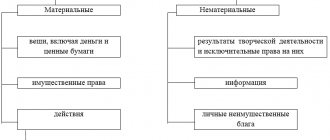What is a one-way transaction?
A unilateral transaction is an agreement in which only one party participates. That is, to complete this transaction, the will of one party is required.
Such agreements are regulated by paragraph 2 of Article 154, as well as Article 155 of the Civil Code of the Russian Federation. An example of a transaction is a will. Although there are other persons (participants) in this document, its conclusion requires the will of one testator. He must not give notice to potential heirs.
In civil transactions, unilateral transactions are less common than bilateral and multilateral transactions. What types of unilateral transactions are there, are there any nuances when concluding them and can they be declared invalid? View answer
A unilateral transaction will have legal consequences only when it is executed in accordance with all laws. The document must not violate legal norms.
A unilateral transaction does not always imply that one person expresses his will.
The will of one party, which can be represented by several persons, is assumed. However, multiple parties to a transaction are not always allowed. It all depends on the regulations of the specific agreement. For example, a will can only be made by one person.
A unilateral transaction involves the emergence of obligations only on the party that entered into the agreement. However, the exception again is a will. In this case, persons receiving an inheritance may be required to transfer part of the property to third parties. For example, an heir inherited a car. He will receive it only if he transfers a fixed amount to an elderly relative. The basis for the transfer of obligations in a unilateral transaction is paragraph 1 of Article 1137 of the Civil Code of the Russian Federation.
ATTENTION! Unilateral transaction and unilaterally binding transaction are different terms. In the second case, obligations arise not from the person who entered into the agreement, but from third parties. The main and main difference between unilateral transactions and multilateral ones is that in the first case only one party takes part.
IMPORTANT! The general provisions of law regarding obligations and contracts apply to unilateral transactions.
Article 153. Civil Code of the Russian Federation
The concept of a transaction: Transactions are the actions of citizens and legal entities aimed at establishing, changing or terminating civil rights and obligations.
Transactions are classified on various grounds:
1. Types of transactions depending on the number of parties involved in the transaction: unilateral and bilateral or multilateral transactions (clause 1 of Article 154 of the Civil Code of the Russian Federation).
This classification is based on information about the number of persons whose expression of will is necessary and sufficient to complete a transaction.
A unilateral transaction in accordance with clause 2 of Art. 154 of the Civil Code of the Russian Federation recognizes a transaction for which it is sufficient to express the will of one party (for example, making a will, renouncing the right of ownership of property, refusing to accept an inheritance, issuing a power of attorney, announcing a public competition). This kind of action does not require anyone's consent or approval. In accordance with Art. 156 of the Civil Code of the Russian Federation, general provisions on obligations and contracts apply to unilateral transactions insofar as this does not contradict the law, the unilateral nature and essence of the transaction.
To conclude most transactions, it is necessary to express the will of two parties (bilateral transactions) or three or more parties (multilateral transactions); such transactions are also called contracts (clause 3 of article 154 of the Civil Code of the Russian Federation);
2. Types of transactions depending on the significance of the basis of the transaction for its validity: causal and abstract transactions.
Any transaction has a legal goal, which the subjects strive to achieve. From a causal transaction it is clear what purpose it pursues. The validity of a causal transaction depends on its purpose. Moreover, the goal must have two characteristics: to be legal and achievable. Failure to comply with these conditions entails the invalidity of the transaction.
From the general rule about the need to have a basis for the validity of a transaction, there are exceptions established by law when the basis of the transaction is legally indifferent. Such transactions are called abstract.
For the validity of abstract transactions, it is necessary to indicate their abstract nature in the law. Thus, an abstract transaction is a bill of exchange (Article 815 of the Civil Code of the Russian Federation). Issued as payment for specific goods or services, a promissory note represents a general promise, unconditional on any consideration, to pay a specified sum of money. A properly executed bill remains valid regardless of the basis for its issuance, including in cases where one or more endorsements are found to be forged. Another security of the same type is a check (Article 877 of the Civil Code of the Russian Federation). A bank guarantee is also recognized as abstract (Article 370 of the Civil Code of the Russian Federation), since it does not depend on the main obligation in respect of which the guarantee was provided;
3. Types of transactions according to the influence of timing on the occurrence of legal consequences of the transaction: urgent and unlimited.
In open-ended transactions, neither the moment of its entry into force nor the moment of its termination is determined. Such a transaction takes effect immediately. Transactions in which either the moment of entry into force of the transaction, or the moment of its termination, or both specified moments are determined, are called urgent.
The period that the parties have determined as the moment of emergence of rights and obligations under the transaction is called suspensive (for example, a will is a transaction made under a suspensive period, since it gives rise to rights and obligations only after the opening of the inheritance - clause 5 of Article 1118 of the Civil Code of the Russian Federation). The peculiarity of forward transactions is that the deadline must necessarily occur.
In some cases, the parties provide for the emergence of rights and obligations under the transaction depending on the occurrence or non-occurrence of any events for which it is unknown whether they will occur or not. This type of transaction is called conditional.
Like terms, conditions can be suspensive or dispensable. A transaction is considered completed under a suspensive condition if the parties have made the emergence of rights and obligations dependent on the occurrence of the condition. The rights and obligations of the parties to a transaction with a suspensive condition arise not from the moment it is completed, but from the moment the condition occurs (for example, the obligation of an insurance company to pay insurance compensation arises only in the event of an insured event - clause 1 of Article 929 of the Civil Code of the Russian Federation).
At the same time, during the period from the moment of conclusion of the transaction until the occurrence of the suspensive condition, the legal relations between the parties to the transaction do not disappear, since during this period, arbitrary deviation from the agreement and the performance by a conditionally obligated person of actions that make it impossible for the condition to occur are not allowed. In transactions concluded under a severable condition, the rights and obligations of the parties arise from the moment the transaction is completed and terminate upon the occurrence of the condition.
Article 158 of the Civil Code of the Russian Federation. Transaction form
1. Transactions are made orally or in writing (simple or notarial).
2. A transaction that can be concluded orally is considered completed even if the person’s behavior makes clear his will to complete the transaction.
3. Silence is recognized as an expression of the will to complete a transaction in cases provided for by law or agreement of the parties.
Article 159 of the Civil Code of the Russian Federation. Oral transactions
1. A transaction for which a written (simple or notarial) form is not established by law or agreement of the parties may be concluded orally.
2. Unless otherwise established by agreement of the parties, all transactions executed upon their very completion may be made orally, with the exception of transactions for which a notarial form has been established, and transactions, failure to comply with the simple written form of which entails their invalidity.
3. Transactions in pursuance of an agreement concluded in writing may, by agreement of the parties, be made orally, if this does not contradict the law, other legal acts and the agreement.
Article 160 of the Civil Code of the Russian Federation. Written form of the transaction
1. A transaction in writing must be concluded by drawing up a document expressing its contents and signed by the person or persons entering into the transaction, or persons duly authorized by them.
The law, other legal acts and agreement of the parties may establish additional requirements that the form of the transaction must comply with (execution on a certain form, sealed, etc.), and provide for the consequences of non-compliance with these requirements. If such consequences are not provided for, the consequences of failure to comply with the simple written form of the transaction apply.
In accordance with Art. 161 of the Civil Code of the Russian Federation must be concluded in a simple written form of transactions (with the exception of those requiring notarization):
— legal entities among themselves and with citizens;
- citizens among themselves for an amount exceeding at least ten times the minimum wage established by law, and in cases provided for by law - regardless of the amount of the transaction.
Sales or cash receipts are not a simple written form of a transaction, since they do not contain the necessary details (information about the parties to the transaction, the subject of the agreement, etc.). This, however, does not mean that sales and cash receipts have no legal significance. They can, along with other documents, be used as evidence during legal proceedings.
Failure to comply with the simple written form of a transaction as a general rule (clause 1 of Article 162 of the Civil Code of the Russian Federation) deprives the parties of the right in the event of a dispute to refer to witness testimony to confirm the transaction and all conditions, but does not deprive them of the right to provide written and other evidence (sales receipt, cash register). receipt, audio-video recordings, etc.).
In cases directly specified in the law or in the agreement of the parties, failure to comply with the simple written form of the transaction entails its invalidity (for example, an agreement on a penalty (Article 331 of the Civil Code of the Russian Federation), on a guarantee (Article 362 of the Civil Code of the Russian Federation), a promise of donation (Article 574 Civil Code of the Russian Federation)).
Failure to comply with the simple written form of a foreign economic transaction entails the invalidity of the transaction (clause 3 of Article 162 of the Civil Code of the Russian Federation).
A notarial form of transactions is required for transactions directly provided for by law, as well as by agreement of the parties, although by law this form was not required for transactions of this type (clause 2 of Article 163 of the Civil Code of the Russian Federation). The notarial form differs from the simple written form of transactions by the presence of a certification inscription of a notary or other official who has the right to perform such a notarial act. Thus, a notarial form is required for a will and annuity agreement.
Article 164 of the Civil Code of the Russian Federation. State registration of transactions
1. In cases where the law provides for state registration of transactions, the legal consequences of the transaction occur after its registration.
2. A transaction providing for a change in the terms of a registered transaction is subject to state registration.
Article 165 of the Civil Code of the Russian Federation. Consequences of evading notarization or state registration of a transaction.
1. If one of the parties has fully or partially executed a transaction requiring notarization, and the other party evades such certification of the transaction, the court, at the request of the party that performed the transaction, has the right to recognize the transaction as valid. In this case, subsequent notarization of the transaction is not required.
2. If a transaction requiring state registration is completed in the proper form, but one of the parties avoids registering it, the court, at the request of the other party, has the right to make a decision to register the transaction. In this case, the transaction is registered in accordance with the court decision.
3. In the cases provided for in paragraphs 1 and 2 of this article, a party that unreasonably evades notarization or state registration of a transaction must compensate the other party for losses caused by the delay in completing or registering the transaction.
Examples of one-sided transactions
You can understand what unilateral transactions are based on specific examples. The following cases have the characteristics of a unilateral transaction:
- Granting a power of attorney (Article 185 of the Civil Code of the Russian Federation).
- Issuing a check.
- Pass.
- Application of a person to leave the LLC.
- Refusal of property and rights transferred by inheritance (Article 157 of the Civil Code of the Russian Federation).
- Acceptance of inheritance (Article 1152 of the Civil Code of the Russian Federation).
- Directing the execution of payment to an absent creditor.
- Public statement on the appointment of a reward for the found property (Article 1055 of the Civil Code of the Russian Federation).
- Public statement about holding a competition (Article 1057 of the Civil Code of the Russian Federation).
As can be seen from the notes to the list, certain unilateral transactions are regulated not only by Article 155 of the Civil Code of the Russian Federation, but also by other regulations.
Are there any specific features for specifying unilateral transactions made by a commission agent?
Transactions aimed at terminating rights
The last type of legal termination transactions is quite interesting, because there are very few examples of such legal relations in the Civil Code. In Civil Law there is such an institution as waiver of rights. Article 9 of the Civil Code of the Russian Federation states that the refusal of an individual or legal entity from its right does not entail the termination of its existence. It follows that in obligatory legal relations, for example, a creditor may waive the right to collect a debt, but this will not mean that it disappears. In turn, a terminating unilateral transaction creates obligations for the other party. Its essence is to accept the waiver of the right, because the debtor cannot force the creditor to exercise the right to collect the debt. Termination transactions raise the largest number of questions among scientists. Since many generally deny the existence of this species. For example, waiver of rights does not apply to transactions at all. This is more likely a source of legal relations than obligations.
Differences between unilateral and multilateral transactions
Let's look at all the differences between regular contracts and unilateral agreements.
| Unilateral agreements | Standard contracts | |
| Explanation of the term | Clause 2 of Article 154 of the Civil Code of the Russian Federation. | Clause 3 of Article 154 of the Civil Code of the Russian Federation. |
| Moment of conclusion | The will of the party that enters into a unilateral transaction. | After agreement of all parties involved in the transaction. |
| Situations in which it is possible to execute a transaction | The transaction does not oblige the recipient to anything. There may also be no addressee at all. It can be concluded in all cases stipulated by law. | Any situations that are not prohibited by law (based on Article 421 of the Civil Code of the Russian Federation). |
| Rules governing the transaction | Chapter 9 of the Civil Code of the Russian Federation, provisions on contracts specified in Article 156 of the Civil Code of the Russian Federation. | Clauses on contracts contained in Articles 307-453 of the Civil Code of the Russian Federation. |
| Obligations arising as a result of a transaction | Obligations, according to Article 155 of the Civil Code of the Russian Federation, arise only from the party concluding the agreement. | Responsibilities arise for all parties. Detailed information about this can be found in paragraph 3 of Article 308 of the Civil Code of the Russian Federation. |
A unilateral transaction is a simpler type of agreement, since there is no complex variety of relationships characteristic of ordinary contracts.
What transactions require notarization (certification) ?
What do they have in common?
The concepts under consideration have much in common. The presence of similarities makes differentiation difficult. To properly understand the similarities, let's look at the following criteria:
- subject composition (participants are legal entities and individuals);
- legal regulation (often characterized by the application of the same rules of law and clarifications of the courts: Civil Code of the Russian Federation; Resolution of the Plenum of the Supreme Court of the Russian Federation No. 7 of March 24, 2016; Resolution of the Plenum of the Supreme Arbitration Court of the Russian Federation No. 13 of October 31, 1996);
- form (can be done in written or oral form);
- certification procedure (by virtue of the law, the right to require state registration or notarization, for example, the legislator explains: a lease agreement is what kind of transaction, and in what cases state registration is required (Article 609 of the Civil Code of the Russian Federation));
- act as a legal fact (they can create, change or terminate legal relations);
- the principle of freedom (the possibility of voluntary imprisonment and choice of form; freedom in imprisonment and determination of conditions).
Draw up any agreement for free using a special agreement designer from ConsultantPlus.
Types of unilateral transactions
The classification of unilateral transactions is carried out on the basis of certain characteristics. Let's consider this classification. Based on the number of participants, agreements are divided into these forms:
- A unilateral transaction concluded by one person (a clear example is a will, which cannot be concluded collectively).
- A unilateral transaction in which many persons participate (this is the provision of a power of attorney from several people, a public statement of remuneration).
Transactions are divided into types depending on the nature of the legal consequences:
- Law-altering. When they are concluded, the relationship between the parties is adjusted. An example of such a transaction is the fulfillment of an obligation or the imposition of a penalty on items pledged.
- Right-beginning. As a result of the conclusion of an agreement, a right or obligation is formed. An example is a public announcement about a competition.
- Legally terminating. A party is presumed to be waiving a right previously granted. For example, the heir does not want to receive an inheritance and draws up a document with the corresponding expression of will.
The legal consequences of unilateral transactions may depend on supporting conditions. Transactions are also classified according to this criterion:
- The legal consequence arises regardless of various third-party circumstances. For example, this is the provision of a power of attorney, which a person can use immediately.
- The legal consequence arises depending on the fulfillment of a number of conditions and circumstances. For example, a will comes into effect only after the testator has died. The heirs cannot take over the rights immediately. The testator may also introduce additional conditions. For example, the heir will not be able to receive property if he does not care for the testator’s pets.
The characteristics of a unilateral transaction are determined depending on who the recipient of the message is:
- The addressee of a unilateral transaction already has a relationship with the person entering into the agreement. An example would be a will. The testator knows to whom exactly he gives the rights to the property.
- The addressee is a third party. This is assumed to be an interested party. An example of such a unilateral transaction could be a public announcement of a competition. Essentially, the applicant does not know who the addressee is.
Transactions are divided into types depending on the specifics of the entry into force of its provisions:
- For a unilateral transaction to come into force, the reaction of other participants is not required. That is, the will of one party is sufficient. For example, this is a refusal of inheritance. According to the law, the heir has every right to refuse the property transferred under the will. He does not need to obtain any permission to do this.
- The implementation of transaction points depends on the perception of the addressee. For example, this is a will. It will be realized only if the heirs wish to accept the property.
Unilateral transactions differ in legal consequences and implementation features. It is believed that the execution of a unilateral transaction depends only on the will of one person. However, this is not quite true. Expression of will is necessary in order to enter into a legal agreement. Its execution may depend on other participants. A prime example of this is a will. A person may express a desire to transfer his property to any persons (even legal entities), but acceptance of property is a matter of the will of the addressee.
Consequences of a voidable transaction
A judge's decision to set aside a disputed transaction has several serious consequences. The first and most obvious of them is the restoration of ownership of property alienated under a contract of sale, exchange, gift, etc. Other no less significant consequences of the invalidity of a voidable transaction are:
- inclusion of property in the bankruptcy estate formed by the arbitration manager;
- renewal of the buyer's claims against the debtor who violated the law during the conclusion of the contested transaction;
- inclusion of the buyer in the register of creditors, which is especially important during the procedure for declaring the debtor bankrupt.
Considering the seriousness of the consequences of declaring contested transactions invalid, it is necessary to involve professional lawyers in the case. Qualified assistance from specialists will protect the interests of participants in such transactions with minimal negative consequences and a reasonable level of associated financial costs.
How to refuse a one-sided transaction
Let's look at an example. One type of unilateral transaction is the voluntary transfer of real estate to the addressee. The recipient has the right to refuse to accept housing. The refusal can be issued only after the date of registration of the deed of gift and the transfer of documents for registration of the transaction to the registering authority. If the documentation has already been sent to Rosreestr, registration can only be canceled through the court.
To refuse, the donee must send an application to Rosreestr to complete the accounting work. The second step is to draw up a claim for termination of the agreement and send it to court. The donee can refuse the property even after he has already taken ownership. This can be done within a year after taking ownership in standard cases. If there are special circumstances, this period is extended to 3 years.
Transactions in Roman private law
The concept of a transaction practically did not exist in Roman law, and even more so, Roman lawyers did not distinguish unilateral transactions.
The main source of change, emergence and termination of rights, duties and obligations were considered to be agreements between the parties and contracts (contractus). As such, transactions were carried out in the presence of the praetor. The man declared that the thing he was holding belonged only to him.
Next, the praetor asked the other side whether she agreed with this statement. If there were no objections, the right passed from one person to another. Thus, a significant change was made in the structure of rights and obligations between the two persons. Later, Roman jurists identified transactions as the general concept of the fact of the occurrence of obligations. The structure of the term included the understanding of contracts and agreements - the main sources of obligations in Roman law. Since the times of Ancient Rome, the concept of a transaction has changed significantly, so the modern institution differs from the ancient Roman one in many ways.
Conditions for recognizing a unilateral transaction as valid
The transaction will be considered valid only if these conditions are met:
- All provisions of the agreement comply with the law.
- A unilateral transaction was concluded by a legally capable person.
- The document sets out a single will. The points of the agreement should not contradict each other.
- The agreement was concluded by voluntary expression of will. If pressure was exerted on the person, the unilateral transaction is considered void.
- If the form of the document is specified at the legislative level, it must be observed.
If these points are not observed, the unilateral transaction is considered invalid even if there is no addressee. Registration authorities simply will not register the agreement.
IMPORTANT! One of the essential conditions for concluding a unilateral transaction is the possibility of its implementation. If it is known that the provisions of the agreement cannot be fulfilled, it is recognized as not concluded.
Agreement and transaction - similarities and differences
A transaction and an agreement are similar on the one hand, but different on the other. Let's look at the differences first and then the similarities.
Have a question? We'll answer by phone! The call is free!
Moscow: +7 (499) 938-49-02
St. Petersburg: +7 (812) 467-39-58
Free call within Russia, ext. 453
Difference between contract and transaction
Let's start with the differences, which are as follows:
- As already mentioned, an agreement and a transaction are general and particular, that is, any agreement is a transaction, but not every transaction is an agreement.
- A transaction can be characterized by both a plurality of parties, which makes it similar to a contract, and one-sidedness. An agreement cannot be unilateral, since it is always characterized by the will of two or more parties to conclude it.
- A transaction is any action that entails civil consequences, in particular the emergence, change, or termination of rights and obligations. A contract always indicates an agreement between the parties, and unilateral action is not recognized by the contract. In other words, a contract always presupposes the sending of an offer and its subsequent acceptance by the counterparty.
- An agreement can be concluded for a specific period or be valid without any period. A transaction is a one-time manifestation of the will of the subject of civil legal relations.
- A transaction may not require any agreements between its participants if it is unilateral (for example, the issuance of a power of attorney). Transactions and agreements that are multilateral require mandatory agreement between the parties, which is confirmed by their signatures on the document. Any change to a multilateral transaction or agreement entails the drawing up of an additional agreement, which is drawn up in the same form as the original document.
As you can see, the deal and the agreement are quite close. Having dealt with the differences, let's move on to their similarities.
Similarities between a contract and a transaction
A transaction and an agreement may be similar:
- According to the form. Both a transaction and a contract can be concluded orally or in writing.
- By content. The content of a multilateral agreement is similar to the content of a multilateral transaction. Essentially, it's the same thing. Differences arise only when the transaction is one-sided.
- In order of certification. They can be notarized, require state registration. registration.
Invalidation of a unilateral transaction
If a transaction, regardless of its type (unilateral, multilateral), is concluded in violation of current laws, they are declared invalid. The criteria for recognizing the invalidity of a transaction depend on the subject of the agreement. For example, if this is a transfer of real estate, you can use the criteria given in Articles 166-167 of the Civil Code of the Russian Federation. Let's look at them in more detail:
- The accompanying documents were found to be illegal. The object of the transaction itself may also be illegal. In this case, the transaction will be considered invalid.
- A claim was filed alleging that the transaction violated the property powers of third parties. In this case, the agreement will be considered voidable.
- The illegality of a unilateral transaction was established in court. In this situation, the agreement is considered void.
If the court or registration authorities establish the illegality of a unilateral transaction, the provisions of the agreement are canceled. From the date of execution of the contract, all related legal relationships receive the status of illegal. The property that is the subject of the transaction is returned to the actual owner.
If violations are found in the contract, a claim can be filed within a year. This applies to the following violations:
- Breach of trust.
- Use of violent measures against the actual owner of property.
- The contract was concluded by an incapacitated person.
A person entering into a unilateral transaction is recognized as legally incompetent in the following cases:
- Having a mental illness.
- Minority.
- Being under the influence of alcohol or drugs at the time of signing the agreement.
In circumstances not listed above, you can apply to arbitration for 3 years on the basis of Article 169 of the Civil Code of the Russian Federation.
Examples of a voidable transaction
It is extremely important to understand that any transaction can theoretically become voidable. This requires the presence of circumstances discussed in detail in the previous section. A typical example of a contestable transaction is the purchase of an apartment from so-called “black” realtors.
It is accompanied by obvious deception of the buyer, who considers the purchase legitimate. At the same time, the purpose of the actions of the second party is to make a profit, and in clear violation of the law.
To obtain an objective idea of the legal nature of the concept under consideration, it is necessary to provide examples of transactions - both void and voidable:
- voidable – concluding a contract under the threat of violence. It is required to prove the fact of threatening actions on one of the parties;
- void – concluding an agreement to donate an apartment to a relative without the actual transfer of real estate. The operation has no legal consequences, since the previous owner continues to live in the premises, pay taxes and utility bills for housing;
- Another example of a void transaction is the conclusion of a contract for the sale of housing by a person under 14 years of age. In this case, no evidence is required, since such operations without the participation of a guardian are not provided for by law.
Controversial issues
There is a controversial point that applies specifically to a unilateral transaction, and not to contracts: whether it will be legal to cancel a transaction if interested parties have already learned about its provisions. For example, an organization submitted an announcement to the media about holding a competition. Interested parties (addressees) read the message, but the competition had to be cancelled. Legislators believe that a transaction is recognized as irrevocable when the recipients have received the notification (saw the message). Instructions regarding the situation under consideration are contained in paragraph 1 of Article 188 of the Civil Code of the Russian Federation, in Article 371 of the Civil Code of the Russian Federation. If a contradiction arises that is not explained by law, a person has the right to act on the basis of established practice.
Fulfillment of obligations as a type of law-altering transactions
Chapter 22 of the Civil Code sets out in detail how obligations should be fulfilled. This term refers to an action performed by the debtor. It is always directed in favor of the creditor and constitutes the content of the obligation as a whole. As a result of the fulfillment of the obligation, the actual legal regime changes. New rights and responsibilities appear. The one-sided nature of this transaction is that the debtor fulfills his obligation, and the creditor has the right to accept or not reject the fulfillment. In this case, the creditor does not have any obligations to the debtor. The transaction is carried out solely for one purpose - to fulfill the obligation. If the creditor does not accept performance, then a completely different legal relationship appears that does not relate to the transaction.
The relationship between contract, agreement, transaction and agreement
In practice, you can often come across terms such as contract and agreement. The concept of contract is usually used when concluding transactions for state and municipal needs (for example, a municipal contract for the purchase of equipment). The term “agreement”, in turn, is used when, on the basis of this document, changes are made to the original contract (for example, an agreement to change the terms of the supply contract).
Treaty, agreement and contract are types of transactions, with various features mentioned above. In fact, these terms are synonyms and have similar features.
We can conclude that the distinction between a transaction, an agreement, an agreement and a contract is very conditional. Contract, agreement and contract are always recognized as transactions (transaction is general, and other concepts are specific). In addition, a transaction can be one-sided, but treaties, agreements and contracts are not, and this is their most significant difference. The term “transaction” is applicable to any agreement, and such use will not be a mistake. A unilateral transaction, in turn, cannot be called an agreement, a contract, or an agreement.










